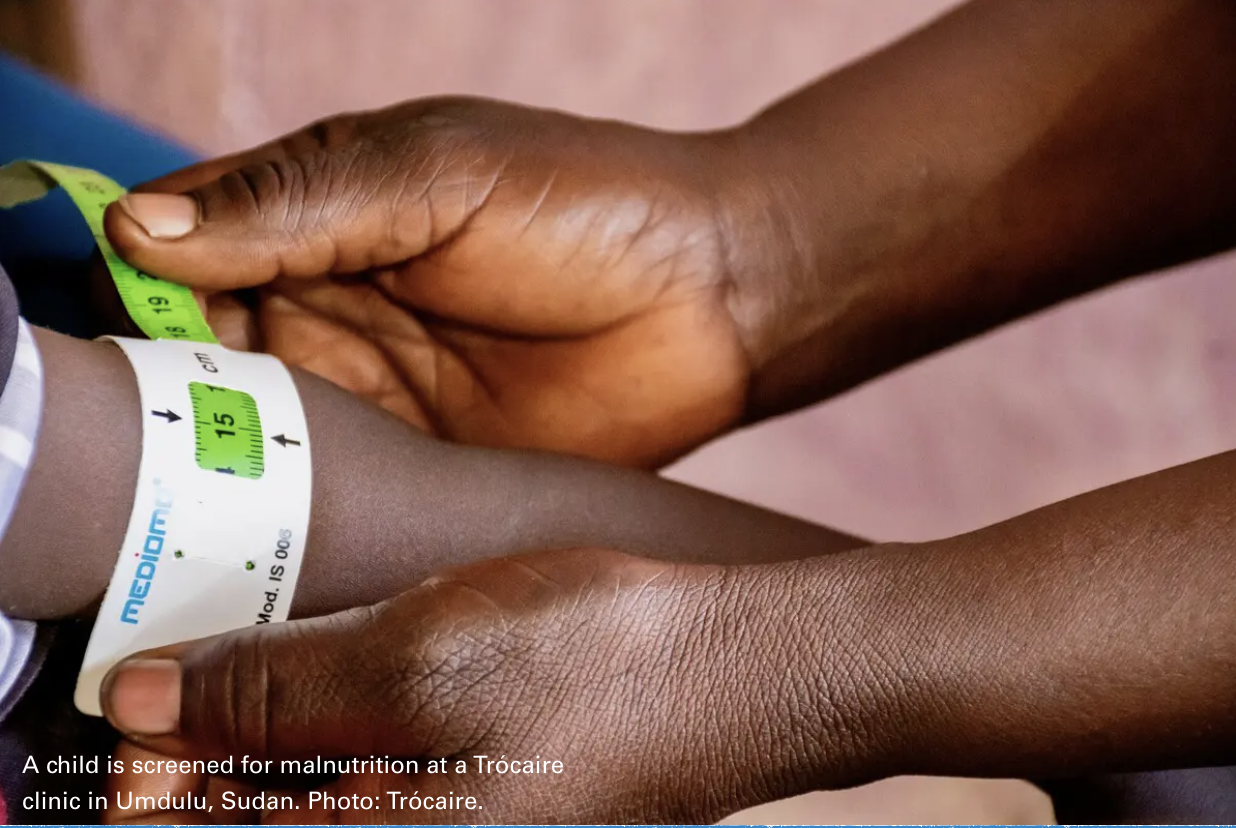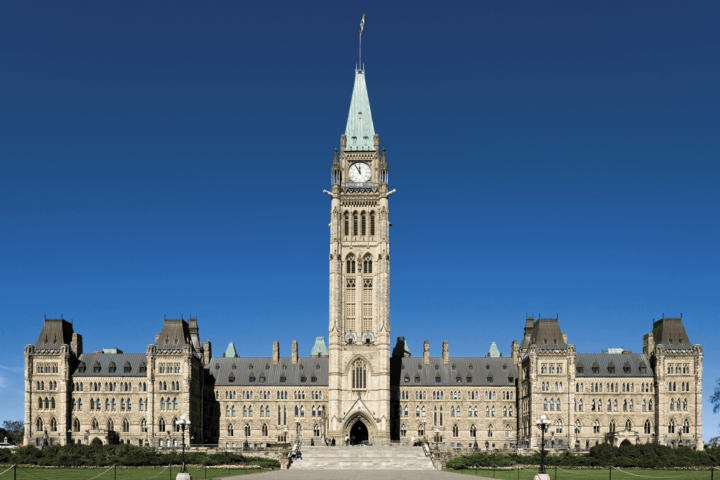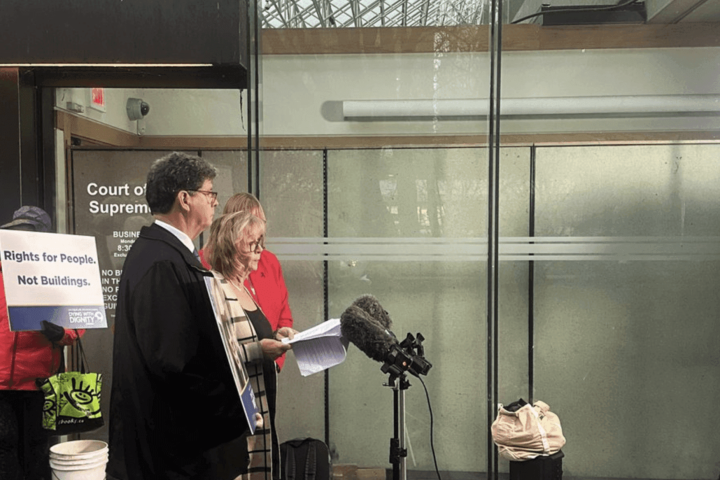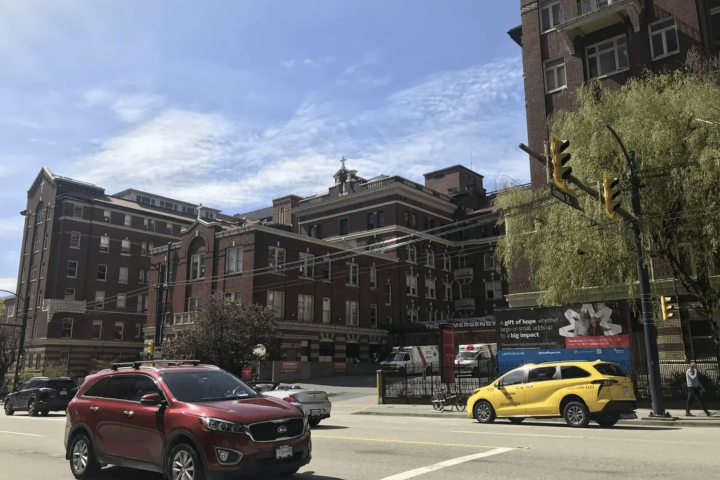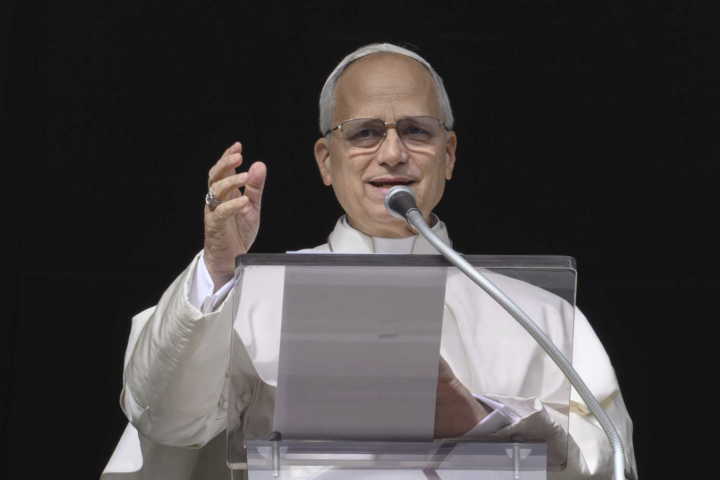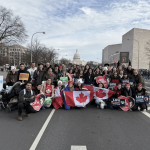OTTAWA (CCN) — Trocaire is an Irish word for compassion. It is also the name of the Irish wing of Caritas International, the global Catholic charity, and a partner organization to Development and Peace-Caritas Canada (D&P).
Working in close collaboration with D&P and the Canadian Foodgrains Bank (an association of Church-related agencies that aims to end global hunger), it delivers compassion and relief to millions in countries where war, violence, civil unrest, drought and floods are causing unimaginable, and often underreported, suffering to their populations.
The support received from Canadian donors literally saves lives in their war torn and climate-decimated countries, say the leaders of Trocaire in Sudan and Somalia.
Mary Wamayu, Trocaire’s country director in Sudan, and her counterpart, Europe Maalim, with Trocaire Somalia, were recently on a whirlwind visit to Canada to apprise Canadians of the devastating consequences of civil war in Sudan and climate disasters in Somalia to thank Canadian supporters and to address the Canadian Conference for Global Health in Halifax.
A firestorm of horrifying posts on social media and news headlines have turned the world’s gaze briefly away from Gaza and Ukraine to Sudan, a sub-Saharan African country that shares a border with Egypt to the north and faces Saudi Arabia across the Red Sea to the east. The headlines were triggered by the capture of El Fasher, a city in Darfur by the Rapid Support Forces (RSF), a Sudanese paramilitary force, engaged in a deadly power struggle with the Sudanese Armed Forces.
At a Caritas Internationalis conference in Rome on Oct. 22, UN special rapporteur for food security Michael Fakhri stated: “The conflict in Sudan is worsening and has become one of the largest starvation campaigns in modern history, with both sides using hunger as a weapon.”
Wamayu witnesses this reality on the ground every day and painted a bleak picture of the situation in Sudan where the deadly civil war brings daily reports of mass slaughters, forced displacement, starvation and famine. The United Nations estimates approximately 40,000 people have been killed in the fighting but the number of dead could be far higher, as a peace plan proposed by the U.S., Saudi Arabia, Egypt and the United Arab Emirates has yet to yield concrete results. There no end to the war in sight.
One of the most heartbreaking consequences is the acute hunger and malnutrition suffered by children and their mothers,Wamayu said, adding that in the displacement camps that people flee to, cholera and other deadly diseases are rampant, exacerbated by lack of water and sanitation and by exhaustion from multiple displacements.
“Imagine a mother trying to feed her baby on a porridge made with bark of trees ground into powder and mixed with a little flour,” Wamayu told The Catholic Register.
She said pleas for food ring constantly in her ears as she and her staff of seven work with local organizations to address the most pressing needs of her people.
“They need food, not money, as giving money to them wouldn’t help in any way. The shops are closed and there is no food in them.”
On Nov. 2, Pope Leo referred to Sudan’s tragedy and issued a call to the international community to intervene “decisively and generously to offer assistance and support those who are working on the ground to bring relief.”
Canadians have responded magnificently to the call, Wamayu said, providing $1.26 million through donations to D&P and the Foodgrains Bank in the last two years.
“With Canadian help we have been able to implement a life-saving nutritional intervention program for kids,” she said. “We have been able to procure sealed sachets of baby food from countries like France and India, arrange transportation and make sure the food reaches the kids it’s intended for.”
Last year, Trocaire Sudan was able to treat 4,612 children for acute malnutrition, with hopes to increase that number to 9,000 this year.
“Without that intervention, these children were seven times more likely to die than healthy children.”
Wamayu and her staff deliver the aid in extraordinarily challenging circumstances.
”We no longer feel safe because of the possibility of drone attacks even in the relatively safe area in the Nuba mountains,” she said, adding that poor infrastructure makes it difficult to reach faraway communities where help is most needed. “But even the staff who no longer have salaries due to USAID budget cuts have stayed on as volunteers because they feel the need is so great.”
In Somalia, the situation is different, but the needs are just as urgent, said Maalim. Pastoralist communities that rely on livestock like goats, sheep, camels and cattle for their livelihood are a significant portion of the population and contribute to approximately 40 per cent of the country’s GDP, but the effects of droughts and floods are taking their toll with lost livelihoods, starvation, outbreaks of diphtheria and other contagious diseases.
But again, Canadian support through D&P is bringing relief to millions.
“Canadians have been major donors of Trocaire Somalia since 2017,” Maalim said. “Through their generous support, we are able to help 1.8 million malnourished kids, and to implement capacity building programs to train local health-care workers.”


